|
Brandon Ivey is best known as being one of the extreme meteorologists or more appropriately called storm (tornado) chasers from the hit-series Storm Chasers. Having lead Team TIV (Tornado-Intercept-Vehicle) into countless tornadoes, with a proportion of chases ending up with a direct hit, Brandon now spends his time in the tornado season running 'Storm Chasing Tour'. By joining up to the tour, Brandon aims to show participants tornadoes up-close (as long as the tornadoes behave and act when needed) but within a respectable distance for obvious reasons. GMA decided to get in touch with Brandon to find out how feasible it could be to film a band with a passing tornado in the background, but also find out how he became involved in tornado chasing, what the future looks like for extreme weather and what working with IMAX film-maker Sean Casey was like. How did you get involved in tornado chasing? Was there anyone who inspired you? What was your first chase you recall? "I became fascinated by tornadoes and severe weather at a young age. A lot of this had to do with the storms we would experience growing up in Wichita, Kansas as a kid. I was inspired by Tim Marshall, Jon Davies, and Howard Bluestein in elementary school. My first chase was at the age of 14. I saw my first tornado when I was in high school at the age of 16." When travelling between sites where tornadic conditions are occurring, is there any music you listen to? What music are you currently listening to? "I like a lot of genres of music. I play guitar so I have a passion for music. I listen to anything from classical to country and from classic rock to some heavy metal. My guitar idols are David Gilmour, Slash, and Mike McCready. The last thing I listened to was Eddie Vedder's "Into the Wild" soundtrack." What factors would a videographer have to consider if they wanted to film a band performing whilst a tornado passed by in the background? Would such a feat be possible? "A band wanting to film in front of a tornado would find it to be a challenging feat since there are so many movie parts to such an achievement. First, most tornadoes only last 5 minutes or less, so you would only get one take! Second, you would have to be in the right position, at the right time. And the last element is you would want to be in a rather safe location to remove yourself from the risk of lightning striking you, hail crashing down, or strong outflow winds hitting you. The best bet would be to film in front of a green screen and edit in the tornado footage behind the band." What was it like working with Sean Casey? Do you keep in touch; is TIV 3 operational? "It was very fun to work with Sean. I learned a lot about filming documentaries and helped him to achieve some of the great shots you see in "Tornado Alley". We still talk on occasion, but we took separate paths in 2014 where I started a storm chasing tour company stormchasingtour.com and he went on to work on a three part IMAX film about glaciers, fires, and severe weather." Surely you'd need to have a certain mindset to chase tornadoes, do you yourself get nervous chasing? What advice could you offer those just starting out? "You need to have the passion for extreme weather to chase. If you are just out there to see tornadoes, you can get frustrated rather quickly. Tornadoes are the icing on the cake or grand prize if you will, but you have to learn to enjoy the travelling, seeing the sights along the great plains, and enjoying other aspects of the storm like lightning, giant hail, storm structure, as so on. The advice I would offer to someone wanting to start chasing severe storms is to learn as much as you possible can before venturing out on your own. You can get into a very dangerous situation rather quickly if you don't have a strong sense of how to safely manoeuvre around storms and tornadoes." In your experience, have tornadoes gotten increasingly destructive with each passing year, that is, could we ever see an increase in F5's? "I don't think tornadoes have become increasingly destructive. I think more towns have been hit in recent years that have made the news more often. A tornado going through a town will be rated stronger than a tornado in open country. The EF scale is based of tornado damage. So they are rated off of aftermath and not actual wind speeds. As our communities grown and expand, there is a higher likely hood of property being damaged." One of the most pressing questions most people ask is, 'do we know how a tornado forms from beginning to end?', how far are we in understanding the process? "The processes in how tornadoes develop is understood quite well. What researchers are focusing on currently is why some supercells produce tornadoes, while others do not. I think the a lot of the answers to that are found in the atmosphere closest to the earth's surface. You want the air just above the surface (lowest 1-2km) to be unstable and contain a decent amount of vertical wind shear." Are there any greetings, etc you wish to send out? "I would like to say hello to all the weather fans out there and to chase your dreams!" http://stormchasingtour.com/ https://www.facebook.com/stormchasingtour/
0 Comments
Virgin Radio is back and better than ever, with a brand new schedule and a new line-up of presenters ready to throw their skills at the microphone once again to a fresh and old-school audience. So with the new revolution in Virgin Radio already in full swing, GMA thought it would be a good idea to interrogate one of these lovely creatures from the Virgin Radio army. Georgie was the only one not to run and hide and so we asked her some questions about her past, what she wants to achieve, how it feels to have her own show on Virgin Radio and perhaps even more crucial, what the future holds for the next generation of aspiring Radio DJ's. Georgie was more than happy to share with us her past experiences in the radio industry and unsurprisingly her background was not a shock, having avid interest in the radio industry helped her get her foot on the ladder so to speak. She explained that whenever she jumped into her mum's car, no matter what she was listening to Georgie would change it to another station be it BBC Radio 1 or the like, however whilst she studied an English and Drama degree at University in the hope she could develop her skills into becoming an actress, she did not feel that she fit well enough into the profession of which her degree is related to. At the end of her course she felt that acting wasn't for her, so after graduating she sent out CV's and letters to various organisations including the BBC in Birmingham and TV production companies, radio stations; she did a program with her mate on Sunday's on the Student Radio at University, involving playing music and general chat. She found herself doing some work experience through a friend of a friend who was on Jersey, culminating in her presenting some radio shows on Channel 103, Georgie became hooked and following her time in Jersey she had a month's stint at Virgin (talk about deja vu). Her time at Virgin lead her to her having a show on XFM - transitioning from internships to a proper paid radio position in the process. At XFM she was able to interview bands on the red carpet, thus drawing in the journalism aspect of her career, Georgie went on to admit that despite "Uni planting the seeds, it took quite a little bit of time to find my way", clearly it has worked out for her in the end admitting that she whilst she was lucky she enjoyed what she was doing. Although some University Radio Stations trump others, Georgie definitely feels that all of them give aspiring radio journalists or people who want to work in the radio industry a platform to jump upon, alluring to the notion that her first times in radio were out of her comfort zone that is not of the norm, that it's different. In fact she's met people who have come through radio and have had student radio experience, not just at the annual Student Radio Awards but in general. In terms of those who want to start a career or be part of the whole radio industry experience including local people as well as students, Georgie says this:- "Go for it, if you really want to work in radio, show your commitment, try and get as much experience as you can, be a 'sponge' in terms of soaking up everything you can from everyone around you, or people who are working in the industry. A big thing I've noticed is that you should be nice to everybody, because you don't know who will end up being your boss in a few years time". Reflecting back to her internship and time working at XFM, the producer at the time was the boss at XFM, four years later he gave Georgie her first live open gig, she adds that:- "Those relationships you hatch along the way are so important, be really nice, be good at your job, get in front of peoples faces but learn the line and know where that line is, so don't be too pushy or too much and just learn the part, if you really want to work in radio you can make it happen... it can be quite a difficult industry to get into and to work your way up... but starting on those local stations, in hospital radio, getting involved with all of that sort of things early on really helps you out and then you want to tap up the bigger and national stations. So it's really important to get as much experience as you can... learn how to edit audio, learn how to make packets, learn how to put shows together and learn the guidelines, OFCOM rules, that kind of thing - this is the sort of thing bigger stations will look for when it comes to internships, people who want to forge a career." Reflecting back on her student days she kinda of felt that she foreseen herself working for a big station like Virgin Radio due to her knack of being direct, admitting her desire to work for a big station - setting it up as a goal for her, an ambition to go for without stopping for anything. Having been in the industry eight years now, it's safe to say she's achieved a lot - just by sticking to it. With the eight years paying off with her first show on Virgin Radio's relaunch, Georgie admitted she was excited at the prospect as she had her internship there back in 2007, with her first Virgin Radio show allowing her to pick the music for the show, bring in bands, etc the freedom to have that element of creativity that was not available to her during her stint at XFM. She admitted that her "first show was really nerve-racking"... whilst she was talking either an ambulance or police car was blaring out past her, but despite that she admitted the experience was nerve-racking because it was a whole new desk and was completely different from what she was used to, "it's a bit like driving a new car where everything is the other way around to what you are used to", now she's rearing to add new elements to her show including interviews and music. However she wasn't that nervous with her first show on Virgin Radio given her previous experiences at other radio stations, "sometimes you have to catch yourself before you go on air and think actually there's a lot of people listening, you have to have the attitude of 'I've got this' even if you feel a bit nervous"; seeing as the radio station had it's restart this was what Georgie was most nervous about seeing as it's a new audience and not "a ready-made audience that were all just going to be there", but overriding the nerves was the pressure even though both go hand-in-hand in this case, however Georgie feels she's comfortable with it all even though outsiders would think of her profession as a bizarre one adding "it's a strange thing to do (being a radio DJ) playing records and essentially talking to yourself in a room, but it's hugely fulfilling to play the music that I love", of course being creative is what sparks off new opportunities and new ventures as well as adventures, so for Georgie this has to be her career highlight. Speaking about her show, which focuses on new music and live sessions, Georgie obliged in telling us what it entails right down to the very core:- "It's called Music Discovery, it's mainly new music but it could be about Radiohead (who recently brought a new album out) or it could be an unsigned band that I have played at my club night, it could be an unsigned band that friends told me about, it could be new music from all corners where it's something from a different country in the world or whatever, I want it to be full of surprises and then I want it to be really broad. I'm so lucky I have carte blanche to do that, and that my boss sees the value in that, so really with the new music we wanted to pepper it with older classics as well... to have some moments where you get to play something that someone hasn't heard... so that's kind of the basis for it really: just some really great music, mainly new peppered with some classics and I don't hold back, I've had anything from Led Zeppelin live sessions played to Tribal Quest, to the Beastie Boys to Pearl Jam to Sébastien Tellier, just really brilliant tracks that just aren't forgettable" Georgie is no strange to live sessions as she's done these on Brighton Festival Radio back in the day with a show featuring the likes of Ben Howard and Daughter before their careers kicked off massively, "I asked them to come and play and they did live sessions on air with me, which was incredible and now that I think about it, I feel like crazy because they're in their own rights pretty famous, Ben Howard has really smashed it. Daughter have made a name for themselves here and in America... really eager to get bands in (on her Virgin Radio show) playing live music... so yeah I've got experience from it and I've also got experience of it on XFM, when iTunes Festival happened I was covering the evening show at the time", live sessions are a great way of bringing the artist closer to the audience without them paying to see them, but also bands and artists have in the past done songs in acoustic form or another form of music style which really makes it all worthwhile listening to. For some journalists and radio DJ's, the whole topic of separating your professional side from your social side has always been debated upon, but for Georgie she feels that you should keep both intact as she goes on to explain:- "Not really because I feel when you have bands on your show, or when you do an interview, it's like having a chat - that's how I view it, you want to get bands to the point where they feel comfortable with you and you want to feel comfortable with them, so usually I found that it's just like having a chat on air and likewise they'll have a talk with you as well... generally when bands come in they want to be there just as much as you do, more often than not it's just a nice experience really". Working in the music industry gives you a wide range of experiences through its diverse range of professional interests, however naturally with any field of work it throws up challenges that ironically become interesting experiences as well, so what challenges and experiences does Georgie face when doing her daily routine of being a Radio DJ? "I'm one of these people who have quite a few different strings to my bow, I've got the DJ side of my career where I play at clubs and at festivals, I've also got the promoting side where I run a club night with friends which has been going for a few years and so that's promoting and booking artists and then DJ'ing at it, I also have the presenting side of things - presenting radio, on-camera stuff, online content, comparing events like the Rolling Stones exhibitions last year, so I've got a lot of things going on within being a presenter so my day-to-day is very different, I have show-prep time in the week now... involving checking emails, reading blogs, checking music that's coming my way and then selecting tunes, sending my playlist to Richard (Wilkinson) who's head of music at Virgin, downloading the tunes, uploading the tunes, finished them then preparing the show, and then doing the show... every week is different really, I don't have a day-to-day routine - some weeks can be quiet and then some could involve me working all the time, but generally it's doing what I love in radio" Surprising to some, Georgie actually worked with Ken Bruce on BBC Radio 2, so what was all that about? "Within my role at BBC 6 Music which is a freelance music journalist which I've done since 2008, that was where I really got the grounding in journalism and learnt how to be a music journalist, and how to be a broadcaster journalist, so I go and cover different journalists whenever they're off, be it being sick or on holiday, etc I go in and chat with Shaun on the breakfast show or practise with Radcliffe and Maconie on the afternoon show, part of that job is doing a bulletin on Ken Bruce's show on BBC Radio 2 so whenever I cover the breakfast show ever on BBC 6 Music, if I do a whole week then I get to go chat with Ken Bruce and tell him about the big stories of the week which is every now and then, so it's really nice and sometimes it's with Zoe Ball or people that cover his show, he's just the nicest man in the world, which is very great and he makes you feel at ease because BBC Radio 2 is the mother-ship, and BBC Radio 2 is the one my mum tunes into and she'd be like 'Oh I heard you on Rad 2 today' and it's always quite a 'proud mum' moment" Due to Georgie's hectic schedule through DJ'ing, producing, running club nights, everything that she has aforementioned, does she have any time to chill out and unwind, what about any hobbies or interests that she has? Turns out she has it all sussed out:- "I love going to gigs, love going to theatre, I love sport but at the moment I'm a bit out of action, I love snowboarding and have been getting into surfing, but I managed to break my knee cap into six pieces at the beginning of the year, so I've been a bit off-game so I'm recovering from that... but yeah just like a active lifestyle around London and have got lots of friends who live in sort of East and North London, so I can't get on the bicycle at the moment... just like cycling around, going to my local parks, to galleries, to the cinema - love a good film! Generally I just fill time outside of it with lots of hobbies, I think I'm quite good at walking out of work and switching off and just enjoying my social time, I think it's so important to do that when you're freelancing, you're trying to juggle all these things and I think if you're kind of always thinking about work and always in the 'workhead' it can drive you a bit crazy, sometimes when you're freelancing you'll have a month where it's a bit quieter, but enjoy that time because the next month will be so busy that you're kinda chasing your tail and you don't really get that down time". When asked about sending out greetings, Georgie wanted to thank "the team at Virgin Radio for being so brilliant and all so lovely, they're a really good gang and I feel so privileged to have met everybody and be part of it". http://www.georgierogers.co.uk/ http://virginradio.co.uk/ As you may (or may not) well know, last year we started a series of posts regarding metal music lyrics and whether they could be used as an educational tool, not just for students but for people in general. Our series kicked off with Eastern Front (Candlelight Rec.) and now we are happy to announce the resurrection of this series with Sweden's Scar Symmetry (Nuclear Blast Rec.). Scar Symmetry's drummer and lyricist Henrik Ohlsson was happy to sit down with us and discuss this topic. We will be announcing our next band very shortly, but for now make a cup of tea, sit down and enjoy what Henrik has to say about this topic. In general do you feel that heavy metal lyrics can be used as an educational tool? Yeah, in terms of learning English it has been a great tool for me personally. When I started listening to Heavy Metal at the age of eight I quickly expanded my vocabulary beyond most of my classmates (at least those who wasn't into Heavy Metal, ha ha). At the age of fifteen I knew ten different synonyms to the word "rot" thanks to Death Metal! I guess that Heavy Metal lyrics can be educational in other areas as well, first and foremost as an introduction into various subjects. Actually I think that the value of Heavy Metal lyrics has been generally overlooked in many ways, people that don`t know anything about Metal automatically dismiss it as crap consisting of cuss words, Satanism and sex... but boy, are they wrong! There IS some of that as well, obviously, but it`s only the tip of the iceberg. With respect to Scar Symmetry, do you feel that the lyrics can be used in science and philosophy lessons? Well, yeah! Why not? At least I think it can be used to lure students into science and philosophy, to sort of catch their attention. Especially if they are Scar Symmetry fans or at least fans of Metal. Since your forthcoming album "The Singularity (Phase I: Neohumanity)" is a concept release, could you give us a guide to what each song represents and then tie this into an educational context? The first track called "The Shape of Things to Come" is basically an intro and it poses some of the questions that are dealt with on the album as a whole. As the emergence of trans-humanism shoots forth there is a possible threat looming and the intro kind of sets the atmosphere for the nightmare scenarios that occur later on in the story. The song "Neohuman" is a long epic track and it is written from the perspective of the "modifiers" who transform regular humans of flesh and bone into modified cyborgs. They can`t understand how someone could say no to eternal life and they are pretty aggressive in their arguments for the neo-human age. "Limits to Infinity" is written from the perspective of the elite, the hidden hand, those who rule the world behind the scenes. They know a lot about how reality is constructed, the secrets to infinity and why the term "as above, so below" is such a profound philosophical sentence. Their plan is to merge with machines, colonize other planets and leave the rest of mankind in their misery on a planet that is barely habitable. The song "Cryonic Harvest" deals with cryonics, the preservation of bodies in nitrogen tanks. This is something that is done today but in the lyrics they can actually resurrect the bodies and welcome them to "digital immortality" thanks to recent technological advances. "The Spiral Timeshift" talks about the fact that you can`t stop an idea when the time for it to happen has come; it doesn't matter how much you oppose it. It also talks about the psychology in introducing a new idea to the world - at first it is completely denied, then massively opposed, only to suddenly become an indisputable truth. This is connected to the theme presented on the album where people slowly accept the unacceptable. The instrumental track "Children of the Integrated Circuit" obviously doesn't have any lyrics but the title refers to the modified humans of the neohuman age. "Neuromancers" is a song that is again written from the perspective of the "modifiers" and it goes deeper into their mindset and how they perceive themselves as gods. I guess you can say that they showcase the ultimate manifestation of hubris. In the closing epic track "Technocalyptic Cybergeddon" we get to see things from the perspective of a neo-human being. He has been modified and initially feels a part of the next step in evolution, but now there are things emerging from inside of him that he didn't know was there. He has implants in his brain, and in other parts of his body, and all of a sudden this has caused him to lose control of his own thoughts. He is being instructed by the programmers of his software to do things that he would never normally do. Like killing "regular" unmodified humans who is seen as lesser beings. What seemed like a blessing has quickly turned into a hi-tech curse! And that is where the first part of this trilogy ends. I guess every song could be used in education about philosophy and science, particularly how we react to new things introduced into the world and what the consequences of trans-humanism might be. The lyrical content is pretty dystopia-based obviously, since it is Metal music. But you can use the lyrical content as a gateway to the subjects presented on the album no matter if you are positive or negative towards these things. You can watch the lyric video for "Limits To Infinity" below Carrying on about the forthcoming album, what does the title mean and is this part of a series of concept albums (focusing on the Phase I: Neohumanity part)? The Singularity is a well established term describing the point where artificial intelligence exceeds human capacity. Neohumanity is a description of the new human beings who are no longer just flesh and bones, they have implants and various technological modifications - thus a whole new species has been created. "The Singularity (Phase I: Neohumanity)" is the first part of a trilogy and it will continue into other areas in the second and third phases, adding new elements to this epic piece of work. With this in mind to finish this article up, do you feel that metal music carries more intellectual lyrical content than say against pop music? Do you hope that students studying philosophy or science could become inspired by your lyrics for their essays, etc? I don`t think that ALL of the lyrics in Metal feature deeper lyrical content than your average pop band, but there are certainly a lot of examples where Metal gives more food for thought than the traditional "I love you, baby" lyrics often found in mainstream music. I am always honored when someone becomes inspired by my lyrics, I`ve met a lot of fans who have gotten into quantum physics, philosophy and science thanks to the subjects presented on the Scar Symmetry albums. That is truly an honor. If we can inspire someone in any way, shape or form to improve their quality of life then I think we have basically accomplished and exceeded our goal. The Singularity (Phase I: Neohumanity) is out now via Nuclear Blast http://www.scarsymmetry.com https://www.facebook.com/scarsymmetry http://www.nuclearblast.de Upon the recent unveiling of the Heavy Metal degree at New College Nottingham, I spoke to one professor Mr. Liam Maloy (MA, MPhil, BEng, PGCE) of whom is an FDA Music Course Leader and Tutor Lecturer in: Songwriting, Band Performance and Industry Practice.
He has been in the past the music coach for the Joy Division film "Control", with his band Johnny & The Raindrops he has releases six albums. After being awarded an MA in Popular Music Studies, he is currently studying a PhD in Children’s Music at the Liverpool IPM. In the interview I discussed with Liam the metal degree itself; what it entails and what are the prerequisites, how it is attracting interest from overseas as well as how this will benefit the British metal scene. Below you will find first a link to the Heavy Metal degree and below that a link to the Roland Academy staff from which you will find Mr. Liam Maloy. https://www.ncn.ac.uk/content/Academies/PerformingArtsandMusicAcademy/HeavyMetal.aspx https://www.ncn.ac.uk/content/RolandAcademy/Staff.aspx Rhys Stevenson. The above map shows the vastness of Metal music, evidently showing that Africa is not totally represented in the Heavy Metal universe as countries like Mali and Somalia do not have any Metal bands in their history, but due to the internet this may possibly change in the future, the same can be said for the Oceania whereby only Australia, Papua New Guinea and New Zealand are represented, no other nation in Oceania has a known metal band (besides the American dependency of Guam). Oman is omitted because the only known band, Arabia, moved from Oman to Manchester in the UK and thus leaving the metal scene empty. There are numerous bands out there that truly represent their nation's traditional sound (such as Egypt's Scarab, Tunisia's Myrath, Ireland's Waylander, etc) or to the more extreme, playing metal music under the fear of violent persecution (as seen in countries like Morocco, The Lebanon, Iran, etc; especially countries with stringent 'conservative values'. However it does not stop there, in countries like Afghanistan, Angola, Iraq, etc where war and skirmishes have or continue to bombard the streets, bands have either fled (Iraq's Acrassicauda moved to the USA), reappeared (the Angolan metal scene) or in some cases halted playing (as seen with Libya's Terrorism of Brutality as the bassist / vocalist Adam Benamer fought alongside the rebels against Muammar Gaddafi and his totalitarian regime). But the question still remains, does it matter where a Heavy Metal band comes from? Does it matter even when the music is good? Should bands from obscure locations be regarded as pioneers and or special in the global community? This is a debate that always arises, however the aim here is to conclude on a for or against answer with a valid reason. Let the debate begin. Below is a selection of responses from metal bands and music industry personnel all over the world, some are not viewable on here but are part of a YouTube playlist entitled 'GMA Questions' - click here. Maltese Folk Metal musician Draugûl feels that it does matter "where a band comes from, for instance bands from Malta are seldom heard of outside the country, very few people give credit to the talent of the Maltese islands!" - this therefore suggests that some European nations aren't getting the attention they deserve but detracts from the main question, however the answer does answer the question in a different light. Perhaps it's time to get some home opinions on the matter: Zack Williams from English metal band Parasythe feels that where you are located enables one to make good music as your life and location influence on how your music sounds and what it sounds like (this can be applied to bands for example Before Crush in Angola who sing about the historical civil war that left the country war-torn, Terrorism of Brutality from Libya as they fought against the Gaddafi regime and a whole host of Indonesian metal bands who sing predominantly about corruption and politics, even verging into religious territory with the band Tengkorak and their song 'Destroying Zionism'); Indonesia being an Islamic nation. However he also believes that the local area has a significant influence on how your music sounds, for example where a local scene is predominantly Metalcore, bands can learn from each other, but on the other hand the music may potentially diverge from differentiation and enter the 'sounds too similar' territory. For example "If you take the 90's Grindcore scene you had all these tightly connected bands like Bolt Thrower, Napalm Death and Carcass all being a part of that scene and those early Grindcore tapes all had that sound that made it what it was" and that it's stupid to say that where you live has no impact on your attitude and musical output. Sam Knight from the Isle of Man Post-Hardcore band Our Final Hour acknowledged that the band location is situated amongst a "music scene of any alternative stance, therefore any home show we ever played there, would be packed with at least 80% return fans / friends, this created a very tight music scene, and we have a lot of very close friends because of those days in the band, however, it made it almost impossible for us to expand our fan-base without large amounts of social networking, and very costly touring". Economically speaking Sam sadly admitted that touring on mainland Britain would start at £400 for ferry costs and furthermore given the band used to earn "around £60 including all merchandise sales, it was nearly impossible as an unknown band to book a tour long enough, and busy enough to cover our costs. Touring also added a string of personal financial problems, losing jobs due to taking too much time off, causing a spiral of negative events which would eventually ruin the band. So we solved our own problem, and moved over to the mainland and currently live in the south east London area together". This therefore highlights the prospect that any band located on any small island faces tremendous difficulties playing on the mainland as Sam explained, this therefore could resonate in the reason why some European bands do not play in the UK and so therefore as a whole one could say the music industry and economy suffers as a result. Samuel Hatch from Zambian Deathcore band Wrecking Tanganyika agrees that it does matter where a metal band comes from but not for segregation purposes, "different areas create different blends in music and lyrical composition, unlike hip-hop and pop music which sounds all the same; hear one pop song and you've heard them all, metal bands of different nationalities create different blends and grooves to their music" and therefore it would seem that Samuel is saying that Heavy Metal has an unbelievable creative atmosphere, which would certainly prove the point that Heavy Metal it truly global. Taiwan's Crescent Lament feels that "when the band comes from a country where only a minor portion of citizens love metal music, without audience’s support and encouragement, a metal band won’t survive". Acknowledging that metal music is not mainstream in their country, historically there have been "fewer musicians willing to play metal music", however to maintain a unique identity, the band combines "metal music with our native culture. Adding traditional instrument is a method of solution, but it requires extra efforts to integrate Oriental instruments into the conventional metal music. That’s what we are now trying to do". So it seems that there is a divide on this particular question, some are for and some are against the notion that it matters where a metal band comes from, you've heard and read the musicians views, but what do you think? Over to you. 'No music industry personnel were harmed in the making of this article'
https://www.facebook.com/AmnesiaMetal https://www.facebook.com/Beforecrush?fref=ts https://www.facebook.com/crescent.lament.9?fref=ts https://www.facebook.com/deathmetaladam.benamer https://www.facebook.com/draugul?fref=ts https://www.facebook.com/ourfinalhour?ref=ts&fref=ts https://www.facebook.com/parasythe666 https://www.facebook.com/primitiveinvocation?ref=ts&fref=ts https://www.facebook.com/TENGKORAKGRIND?fref=ts https://www.facebook.com/wrecking.tanganyika.official " We are honored to be able to pay tribute to the soldiers that gave their lives during the battles and massacres". Over the next few weeks Global Metal Apocalypse will bring you behind the scenes of what makes certain bands tick in what they play and sing, speaking to metal bands across the globe the central topic is can heavy metal lyrics carry a form of education that ideally could be used in lectures and lessons taught from school to college to university. These are the bands that set on singing about certain topics, subjects and even those who create concept albums. For the first part in the series I spoke to Ipswich Black Metal band Eastern Front and specifically vocalist Nagant and bassist Destroyer about how their passion for the Nazi German / Soviet battlefront in World War Two can be helpful for those studying History.
So guys can Heavy Metal be used as an educational tool? It is our belief in Eastern Front that heavy metal music can be used to educate people in some way however small. In essence Eastern Front could be regarded as a concept band of sorts; we speak from a historical standpoint using the campaigns and battles of the Eastern Front as inspiration for our art. The campaign ran from 1941-1945 and was the single bloodiest campaign fought during World War Two. Over 30 million people died during the campaign so we feel that not only is it a brutal subject that fits our style of music, but it is also important to remind people about what happened in a war that now affords us the freedom to do what we do as a band. We are honored to be able to pay tribute to the soldiers that gave their lives during the battles and massacres. They are our inspiration to continue and push forward with the concept of the band Eastern Front, be it musically or lyrically. We do not wish to use our music as propaganda; we are not a political band nor do we aim to teach people right from wrong, rather to illustrate the battles of the Eastern Front through our music and lyrics from a historical and emotively compelling viewpoint, it is up to the listener to make up their own mind. Could our songs be used in history lessons? To some extent, yes some of our songs could be used in history lessons. The songs are based on factual events but they are still just songs, even though some of them are factually correct some do use poetic license and embellishment to convey the desired emotions. On the debut album "Blood on Snow" tracks such as ‘The Battle of Smolensk’ could be used as it is solely based on an actual battle. On the second album however we are trying to keep all the lyrics historically correct and honestly the themes of our next release are even darker than those of ‘Blood on Snow’, for example the track ‘Descent into Genocide’ is about the massacre that occurred at Babi Yar in 1941. We will still use songs that deal more with emotions such as the track ‘Blitzfreeze’ which is loosely based on a novel by Sven Hassel instead of actual facts. It has never been our intention to preach to people but if we can inspire our fans to do some research of their own and they enjoy learning then that’s excellent as it's a hugely interesting subject. During previous interviews we have been asked similar questions, to that end Eastern Front as a band can be seen as two different entities, on the one hand yes our songs are a good start point for historical study, if fans are interested they can dig deeper into our lyrics to find some interesting facts and learn more about the campaigns of World War Two, if they just want a brutal heavy metal band to listen to then that works too, we're not The World At War, we're Eastern Front, the musical equivalent. Eastern Front’s debut album ‘Blood on Snow’ is now available through Candlelight Records https://www.facebook.com/EasternFront?ref=ts&fref=ts Interviews with the world's culture ministers regarding Heavy Metal culture in their country31/1/2013 Global Metal Apocalypse is adding a new dimension to the site and it may be the first time that a music blog / site has done this, if it is then what can we say? Other than let this new adventure bring greater achievements and a greater global established presence as I conduct interviews and / or gain quotes from different nations in particular their culture ministers on how Heavy Metal is viewed in their country, bring out the controversy and support, this is going to be a bumpy ride. Focusing on a host of established and highly underground metal scenes, this post is aiming to express the feelings of Heavy Metal in the respective country outside the core community by trying to voice opinions and views that ministers of culture express and at the same time seeing if the world's most extreme music genre has impacted on the traditional cultures of the specific nation. So far the ministers from Iceland, Monaco, the Bailiwick of Jersey, New Zealand and Scotland  KATRÍN JAKOBSDÓTTIR Minister of Education, Science and Culture in Iceland (2009-present) Vice-chairman of the Left-Green Movement (2003-present) Unfortunately Mrs. Jakobsdóttir was unavailable to give an interview about the Icelandic Metal scene but instead gave a generous quote on how in her profession she views Heavy Metal in Iceland, this is what she had to say: "In my view the growth and diversity in the Icelandic music scene has never been more evident, the vibrant rock music scene with all its sub-divisions being one part thereof. The underlying causes for this are of course many and different, but one is the strong system that has been built up in Iceland in music education on a municipal level. Schools and youth centers around the country have also in many cases given shelter for young talent to blossom. Recently Icelandic politicians have also become aware of the economic benefits of the arts and creative industries. The support given by governmental bodies to culture and the arts have to be in constant revision, in my view. A national cultural policy has to be both relatively conservative when it comes to taking care of the cultural heritage and forward looking when it comes to adding to that heritage". This therefore seems to a positive messages towards the Icelandic Metal scene, here's hoping it grows and thrives further. Given that Iceland itself has a strong Death Metal and Black Metal scene and also owing to notable bands such as Solstafir, Beneath and the latest exposed metal band Skálmöld, it seems that Icelandic metal has a strong unification and yet are still proud of their heritage as most lyrical themes are based around Vikings, Norse mythology and similar topics, however I don't think a song about the Eyjafjallajökull eruption will come around just yet. 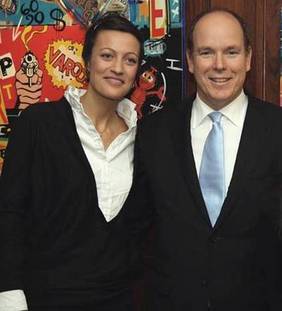 MME AXELLE AMALBERTI (on the left) Rédacteur Principal (Senior Editor) Direction Des Affaires Culturelles de Monaco (Department of Cultural Affairs of Monaco) Unfortunately due to lack of information, the department of cultural affairs in Monaco could not give an interview or quote that is equivalent to what was expected to be given, but instead they did reply with this: "We'd like to first thank you, regarding the interest you attach to the Principality, but unfortunately we are not going to be able to answer to your requests onto the rock and metal music scene, because we do appreciate this style of music, but we do not have enough information in order to provide you a complete answer or interview". Which is totally understandable since there are only at present a couple of projects, musicians or bands in existence at this present time, however the Monegasque metal and rock scene is sure to thrive in the underground until the fateful day when the metal or rock media expose this principality and covers its music scene. In fact the only Monagasque metal band that i can think of is Black Knight Symfonia, essentially a Gothic Metal quartet that is the brainchild of Michaël 'Saga' Fiori and is a four-piece ensemble, there could be a number of factors that could owe to the miniscule size of this metal scene, namely the status of principality may dog the lower class traits heavy metal has and as being Monaco is host to multi-millionaire and is a self-acknowledge tax haven, this would seem likely to be the major factor.  IVOR RICHARDS Senior Youth Worker States of Jersey Youth Service I initially contacted the right honourable Mr. Rod McLoughlin of whom is Jersey's Cultural Development Officer, however he felt that his colleague Mr. Ivor Richards could relate more to the topic in hand and so thus he has delightfully given his answers: "La Motte Street Youth Centre, as part of the Jersey States Youth Service, champions youth music across all its genres. It has a large resource of capital equipment and expertise at its disposal to promote and support teenagers in their pursuit of creative goals – not only in music but also within other creative disciplines such as dance, drama, radio, photography, video and generic media work." "The States Youth Service works in partnership with many other artistic, creative, educational and financial agencies to ensure young people and our project reach full potential. We also work closely with venue owners, studio owners and other performance related personnel to widen the horizons of young people in our projects. The La Motte Street project is a high profile, well respected project which attracts high levels of support and funding within our community". "Commercially, the Island has a number of venue owners promoting music but we uniquely suffer whereby young adult audiences are often off-island studying (18 - 23yr olds) – which has an impact of the viability of live music in licensed premises. Our Arts Centre and Arts Trust organisations also regularly invite local and overseas artistes to perform, predominantly to an adult audience". Although this does not fully cover the initial request, it does offer some insight into what the Jersey music and cultural personnel think about music in general and so thus it would therefore seem that they also accept the metal music genre, given it's small size and locality between the UK and France, I feel that the Jersey Metal music scene is one that should be respected for. 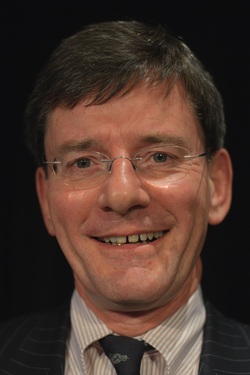 CHRISTOPHER FINLAYSON Minister for Arts, Culture and Heritage (2008 - Present) Attorney-General of New Zealand (2008 - Present) Minister for Treaty of Waitangi Negotiations (2008 - Present) Member of the New Zealand Parliamentfor National Party List (2005 - Present) I directed an email to the right honourable Christopher Finlayson of whom is the minister for arts, culture and heritage in New Zealand, upon receival of his reply he had forwarded his answer through his press secretary Mr. Ben Thomas. Owing to New Zealands small metal scene recognition, it has a fair number of metal bands going around regardless of how well known bands like Ulcerate have garnered international attention, it would seem that the general public only know New Zealand for kiwis, the mountainous terrain and Lord of the Rings, but even Saruman took up the opportune moment. None the less, the response was a pleasing and displeasing reply yet it was interesting "The government of New Zealand has no official position on metal music. The government has an arm’s-length funding agency, New Zealand on Air, whose responsibilities include promoting the presence of local music on radio and television. To this end, New Zealand on Air disburses grants to performers for recording songs and making music videos. Traditionally New Zealand on Air has aimed to maximise “commercial radio” airplay, which may have made accessing funding more difficult for some metal groups. Recent changes to New Zealand on Air funding are intended to broaden the types of acts that are funded. A number of government agencies, including the New Zealand Music Commission and New Zealand On Air support the Smokefree Rockquest, a nationwide school-based competition which encourages young people to write and perform contemporary music. There is no official government support for young people to learn instruments for use in metal music. The government does fund an initiative called Sistema Aotearoa, which enables primary-aged children from disadvantaged communities to learn classical music under the instruction of the Auckland Philharmonia Orchestra. It is not inconceivable that these young players may one day end up accompanying power metal groups such as Nightwish as part of a full orchestra, or providing ominous strings and horns on a black metal record by the likes of Cradle of Filth or Dimmu Borgir". It has been known for musicians to train through non-metal music styles and end winding up in a metal band, such as Apocalyptica who are classically-trained celloists hence owing to their unique genre of 'cello metal', also the ex-Nightwish singer Tarja Turunen is also an opera trained vocalist and since her departure has retained her reputation by going solo. 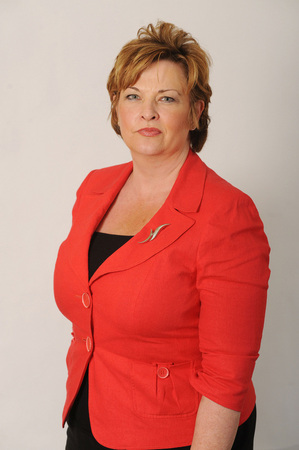 MSP FIONA HYSLOP Cabinet Secretary for Culture and External Affairs(2011 - Present) Member of the Scottish Parliament for Linlithgow (2011 - Present) Scotland has a generally decent metal music scene but there always seems to be a lack of media coverage, besides the obvious well known metal band Alestorm who hail from Perth and play practically Power / Folk Metal but essentially is dubbed 'Pirate Metal', simply due to the pirate related themes they adopt in their lyrics, which ironically is apt since Perth has had a history of shipping and maritime experiences such as trade with the low countries and Baltic nations (Latvia, Lithuania and Estonia). Recently Blackened Folk Metal group Cnoc An Tursa were signed to Candlelight Records and distinctly sing about Scottish history and poetry, which uniquely features songs in both English and Scottish Gaelic, their debut album 'The Giants of Auld' was released February 25th, 2013 and thus becoming another giant step forward for the Scottish Metal scene, on that note it was only apt that the Scotish cabinet secretary for culture and external affairs got interviewed about the nations metal scene, this is what she had to say:
“Scotland is a creative nation which has produced many talented musicians across all genres. Music is a normal and regular part of the curriculum in our schools, encouraging creativity and helping pupils develop. We want all of our children and young people to access music and have the opportunity to learn and explore the subject. In addition, we are continuing to support young Scots to get into music and have protected funding for the Scottish Government’s hugely successful Youth Music Initiative.” "The Scottish Government will provide £10 million for the Youth Music Initiative (YMI) in 2013-14. YMI is delivered by Creative Scotland on behalf of the Scottish Government and supports more than 300 projects each year covering all musical genres, age groups and teaching methods. Local authorities receive £8 million per year with the intention of ensuring all schoolchildren have access to one year’s free music tuition by the end of Primary 6. It is not intended to substitute the provision of core music tuition in" It seems that Scotland does have a fruitful selection of metal bands but non the signed radar, in fact it was only due to Terrorizer Magazine actually featuring Cnoc An Tursa that I actually checked them out and I found startling comparisons to that of English black metal band Winterfylleth of whom coincidentally are also signed to Candlelight records and ideally sing about similiar things except they focus on English and Anglo-Saxon / Pagan heritage. I also recall speaking to vocalist Chris Naughton at Bloodstock on why they called the band name Winterfylleth, intriguingly it is the Old English name for october and that they focused on English heritage simply because as he recalls, there are hardly any metal bands that sing about English heritage, so in some sense this poses the question: "does Heavy Metal offer itself as a vehicle or tool for conveying education and learning in a musical and creative way?" |
© 2011-2022
|
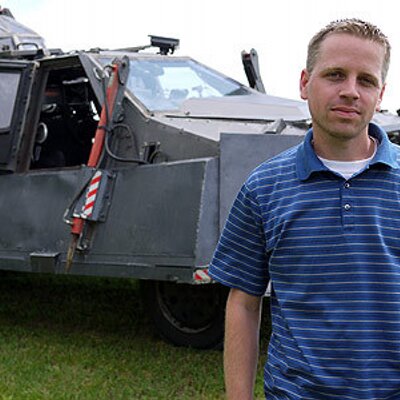
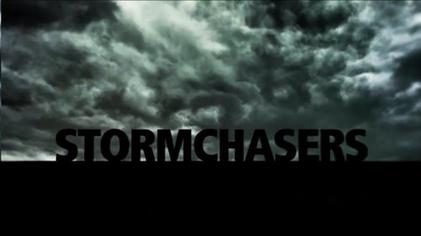
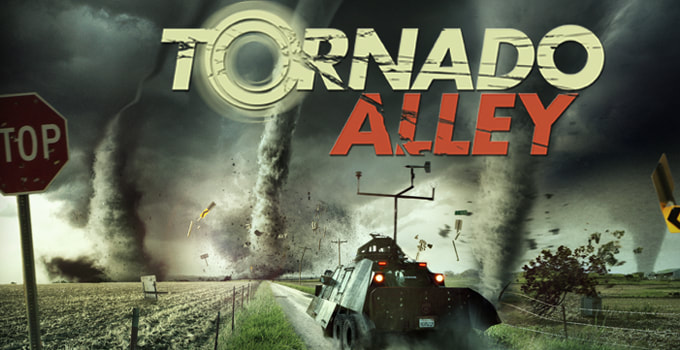




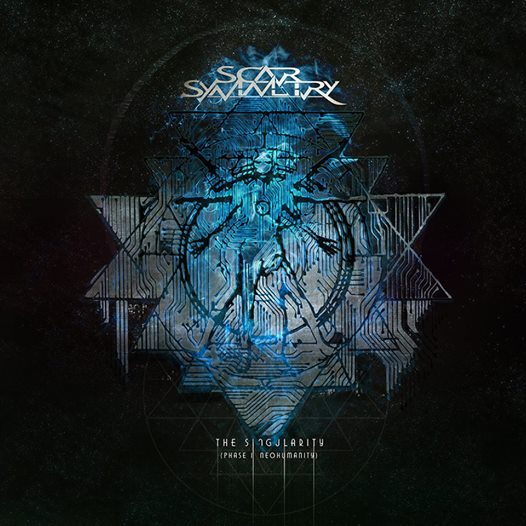

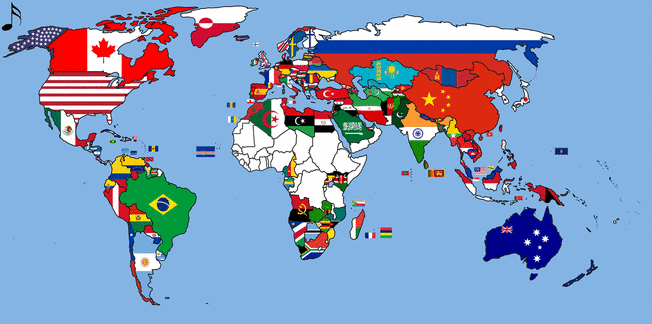
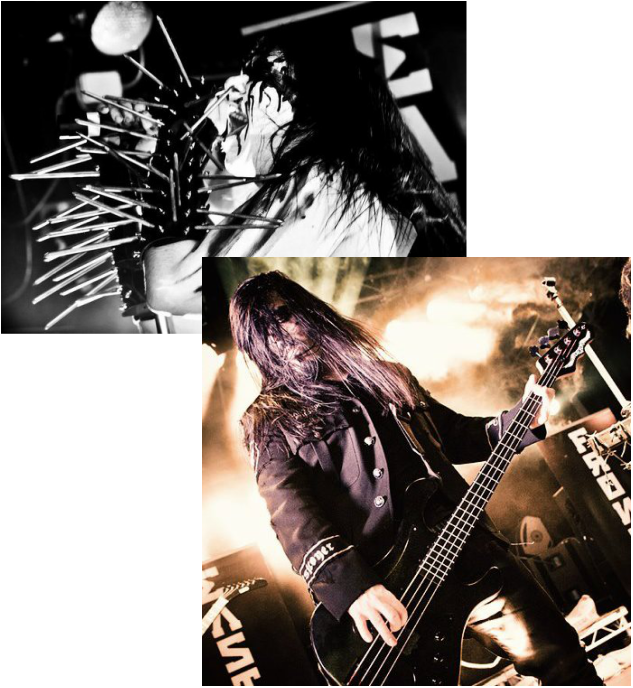
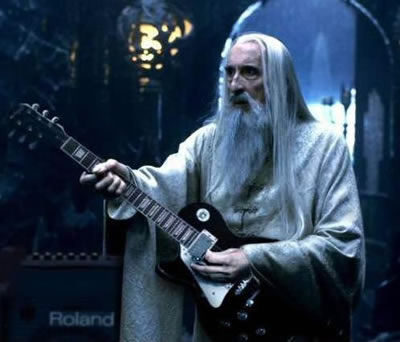
 RSS Feed
RSS Feed